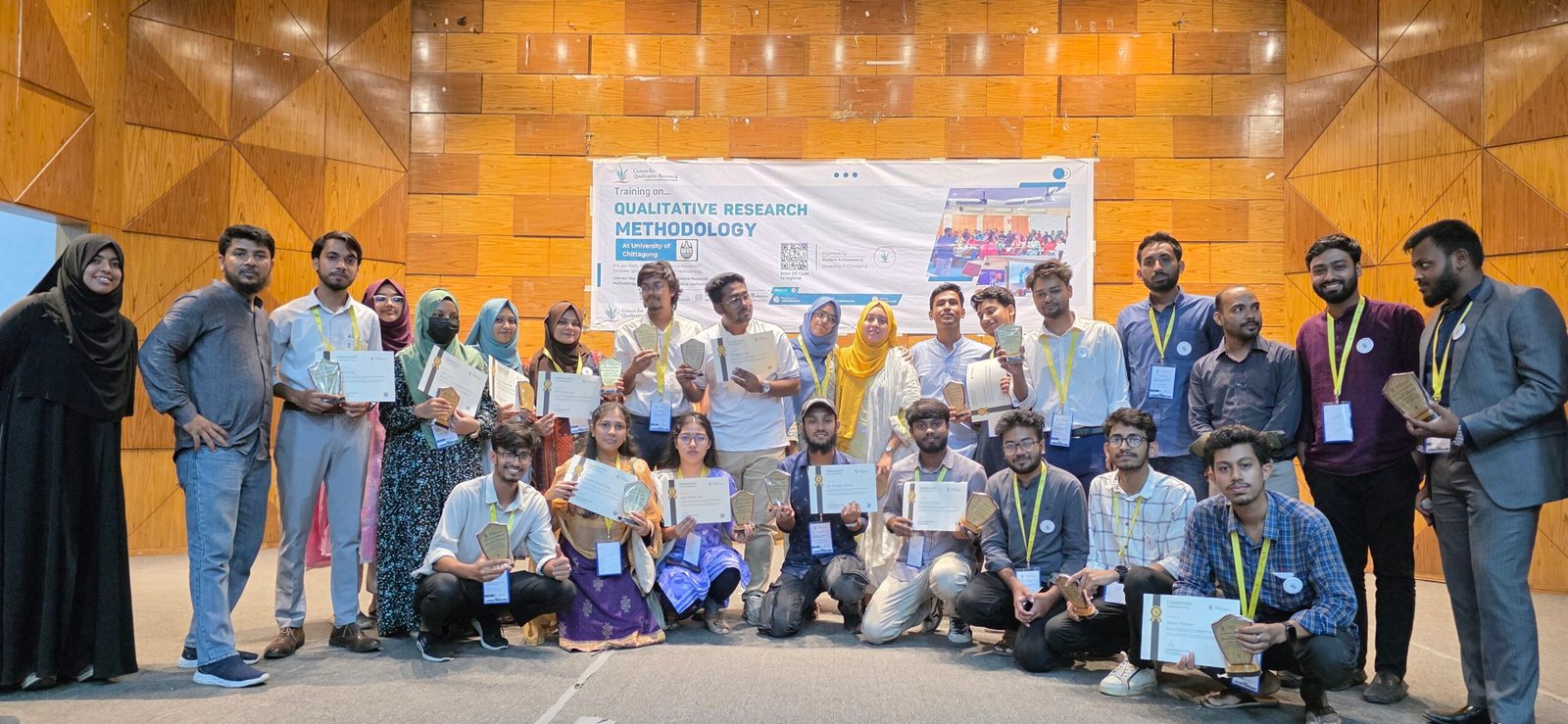The Centre for Qualitative Research (CQR) recently organized a transformative training session on Participatory Rural Appraisal (PRA) for our student ambassadors. This hands-on workshop aimed to equip participants with the practical tools and methodologies of PRA, fostering their capacity to engage with rural communities effectively. The training was an amalgamation of theoretical insights and practical exercises, designed to inspire and prepare the next generation of community development professionals.
This article delves into the objectives, execution, and outcomes of the training, highlighting PRA’s pivotal role in community development and its alignment with the mission of the Centre for Qualitative Research.
Alignment with the Mission of the Centre for Qualitative Research
The Centre for Qualitative Research is dedicated to exploring and advancing participatory methodologies that empower communities and amplify their voices. PRA aligns seamlessly with this mission, as it emphasizes local knowledge, collaboration, and participatory decision-making. By organizing this training, the CQR continues its commitment to fostering qualitative approaches that create meaningful change at the grassroots level.
The training not only served as an academic exercise but also as a stepping stone for the student ambassadors to develop practical skills that align with CQR’s ethos of ethical and inclusive research practices.

How the Training Was Conducted
The training unfolded daylong featuring a blend of interactive sessions, group discussions, and realtime exercises. Here’s a breakdown of the structure:
Module 1 : Introduction to PRA
- Objective: Familiarize participants with the fundamental concepts and history of PRA.
- A comprehensive lecture by our expert trainer.
- A discussion on the importance of participatory methods in community development.
- Viewing case studies where PRA has been successfully implemented.
Module 2: Tools and Techniques
- Objective: Equip participants with the practical tools of PRA, such as social mapping, resource mapping, and seasonal calendars.
- Hands-on exercises using PRA tools.
- Role-playing scenarios to simulate real-world applications.
- Feedback and reflections on group activities.
Module 3: Hands-on exercises and Application
- Objective: Apply the learned methods in a controlled environment to simulate real-world challenges.
- Hands-on exercises with PRA mapping.
- Documentation and presentation of findings.
- Group discussion on experiences, challenges, and insights gained.
About Participatory Rural Appraisal (PRA)
Participatory Rural Appraisal is a set of approaches and methods that enable local people to share, enhance, and analyze their knowledge of life and conditions. This information forms the basis for planning and action.
PRA is fundamentally participatory and people-centered, often employed in community development, natural resource management, and poverty alleviation initiatives. Some of the core principles include:
- Empowerment: Encouraging local communities to take the lead.
- Diversity: Valuing varied perspectives and knowledge systems.
- Sustainability: Focusing on long-term impacts and capacity building.
Tools of PRA
- Social Mapping: Understanding the layout and resources of a community.
- Transect Walks: Observing and analyzing the physical and environmental aspects of an area.
- Seasonal Calendars: Identifying seasonal patterns and their impacts on communities.
- Venn Diagrams: Understanding social and institutional relationships.
- Resource Mapping: Locating and analyzing natural and man-made resources.
Student Ambassadors and Their Role
Our student ambassadors played an active and integral role in the training. These young, motivated individuals are key to implementing PRA methodologies in their respective communities. Their participation included:
- Learning by Doing: Engaging in all hands-on activities and contributing to group discussions.
- Collaborative Problem-Solving: Working in teams to address simulated challenges.
- Reflection and Documentation: Sharing their insights and preparing reports on the outcomes of the exercises.
The enthusiasm and creativity displayed by the ambassadors were a testament to the power of participatory approaches in fostering engagement and ownership.
Outcomes and Impact
The training achieved several milestones:
- Skill Development: Participants acquired practical knowledge of PRA tools and methodologies.
- Enhanced Confidence: Ambassadors felt empowered to engage with rural communities.
- Networking Opportunities: The training fostered collaboration among like-minded individuals passionate about community development.
- Action Plans: Ambassadors developed action plans to apply PRA tools in their future projects.
Conclusion
The Participatory Rural Appraisal training by the Centre for Qualitative Research was a resounding success. It bridged the gap between theory and practice, enabling participants to embrace participatory methodologies with confidence. As the ambassadors continue their journey, their newfound skills and insights will undoubtedly create ripple effects, fostering sustainable development and community empowerment.
Stay tuned for more updates on how our ambassadors apply these skills in the field, and check out the photos below for a glimpse into the vibrant sessions and activities from the training.





